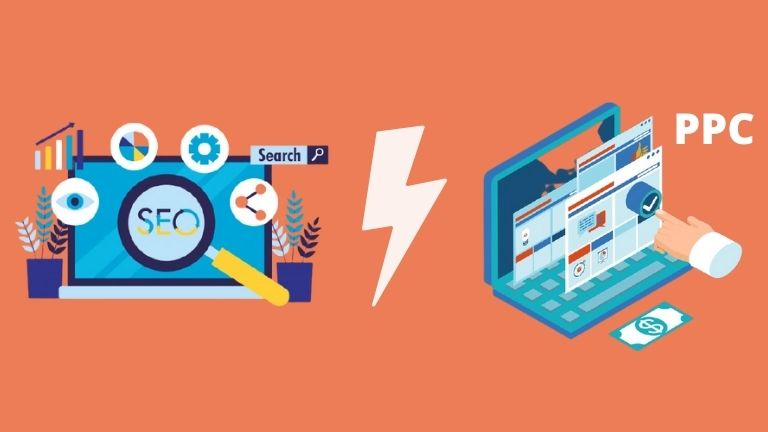
Search engine optimisation (SEO) and pay-per-click (PPC) advertising are two of the most common methods for increasing brand recognition for your company. Because both strategies are based on facts, it’s simple for entrepreneurs and business leaders to figure out where to allocate their hard-earned money.
Let’s take a look at the differences between SEO and PPC to see which is best for your business.
SEO
SEO is an abbreviation for Search Engine Optimisation. SEO or Search Engine Optimization, is the practice of optimising a website to rank as high as possible in search engine results. Understanding what the search engines desire and then optimising your web pages correctly is a big part of that effort.
We all use search engines to locate what we’re searching for on a routine basis, whether it’s a solution to a date-related query or a link to a business that offers particular sorts of sneakers. SEO tries to raise your site’s search engine rating so that your target audience may find it more easily when looking for phrases related to your sector.
In general, this entails a mix of technical website adjustments (such as backend coding improvements), high-quality onsite content, and attempts to build offsite links in Google’s view (and other search engines). In order to increase your perceived authority and significance.
Advantages of SEO:
- Organic traffic is a long-term investment. If you can get your website to rank well in search engines, you’ll almost certainly be able to attract constant visitors.
- SEO is frequently less expensive than PPC. When comparing the two traffic sources, SEO comes out ahead when it comes to traffic generated, as long as you’re talking about traffic that arrives after you’ve achieved excellent search engine rankings.
SEO’s drawbacks include:
- SEO is a time-consuming process. It may take several months for your hard effort to bear fruit. SEO may not be the ideal option for you if you don’t have the time to wait for your website and content to rank.
- You’ll need original and high-quality material. People want to read the most remarkable stuff accessible when it comes to content. This will take a lot of time, effort, study, and vivid imagination. If you lack these abilities, employing a professional is in your best interests.
Pay Per Click (PPC)
Pay Per Click (PPC) is an acronym for pay-per-click advertising. PPC, or Pay-Per-Click Advertising, is a method of advertising in search engines that allows you to gain rapid, focused traffic to your website. The aim is to put advertising that your target demographic will see on sites like Google, Facebook, or Bing. For each individual who clicks on this link, you will be paid a certain sum (hence the name of the strategy). You’ll have total control over how these advertisements look, how they’re written, who they target, and more with the back end.
Each of these tactics is widespread in digital marketing and are tied to search engines, but they need profoundly different strategies. Many people mistakenly believe that they are polar opposites or that you must pick one over the other. In fact, SEO and PPC are most effective when used together.
Advantages of PPC:
- Quick outcomes. Unlike SEO, where you may have to wait months for results, you may start attracting significant traffic to your website within several hours with an efficient PPC campaign.
- You may precisely target specific populations. You would be able to identify different categories of people when you employ PPC. For instance, if you want to advertise to a lady in her 30s who resides in the United Kingdom and enjoys cooking, you may do so. This is not an option in SEO.
- You can try out new things fast and simply. You can quickly assess what performs and what doesn’t using PPC by setting up a campaign and doing A/B testing. Because SEO is a long process, it will take time to get a resolution about an SEO technique’s effectiveness.
PPC’s drawbacks include:
PPC could be costly if you’re in a competitive area, and your return on investment (ROI) may be poor as you figure out which advertisements work and which don’t.
Advertising might lose its effectiveness over time. When you use the same advertising for every campaign, they become stale and ineffective. To fight this, change up the content and visuals in your advertising and refresh them on a regular basis to keep them relevant.
Conclusion
It would be best if you combined SEO and PPC to make them function in unison, minimising their disadvantages. You could, for instance, utilise the keyword and conversion statistics from your PPC campaign to inform your SEO strategy, or you can combine the two to target your audience at every stage of the customer journey.
An integrated approach may improve exposure, attract traffic, and deliver a better entire experience by optimizing both PPC and SEO. It might be the ideal digital marketing strategy for your company.

